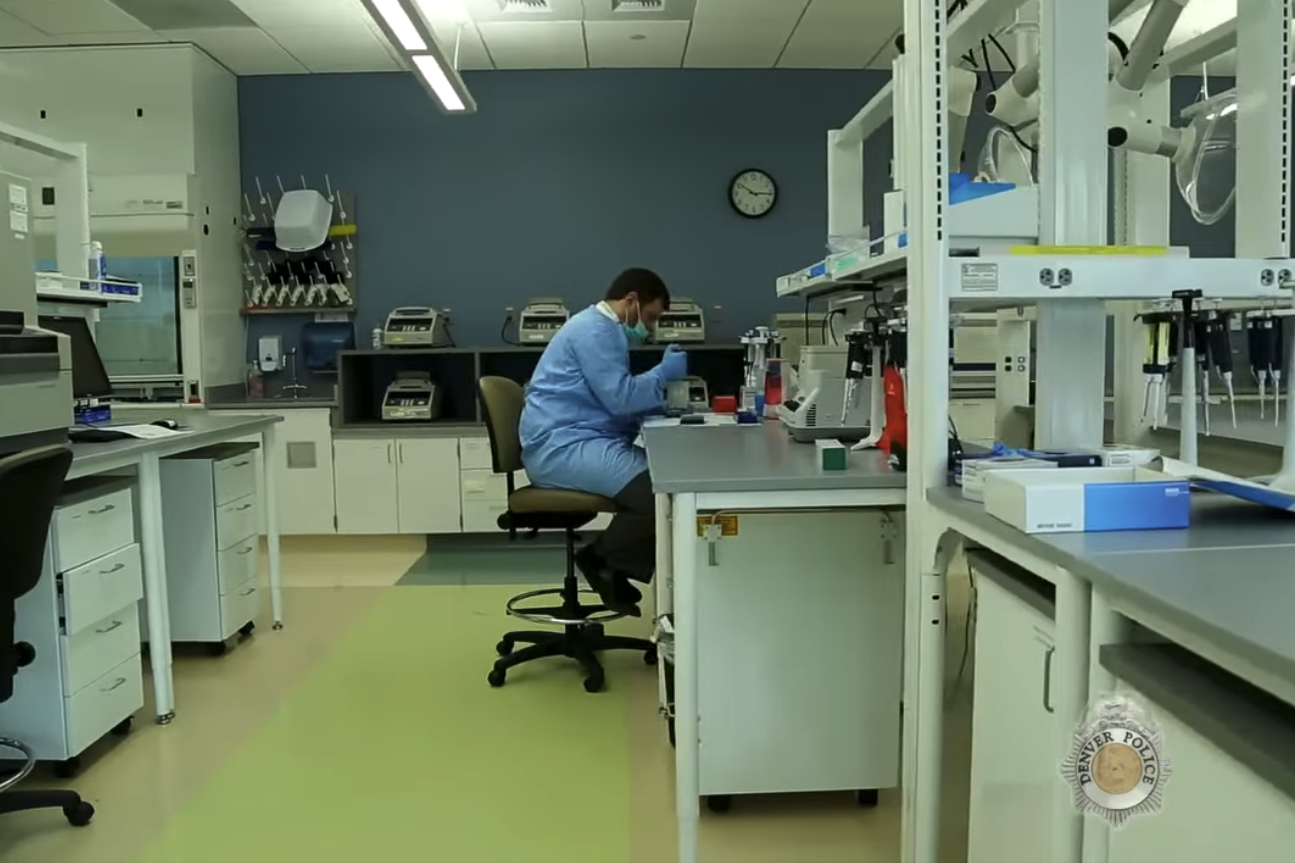
Denver Police Department

Audio By Carbonatix
The testing costs for nearly half of the unprocessed rape kits in Denver’s crime lab will be covered by an anonymous donation.
The Denver Police Crime Laboratory has been awarded $47,250 from a grassroots fundraising effort to clear Colorado’s massive backlog of untested rape kits. The money comes from one anonymous donation of $52,500 made in July; 10 percent of that donation went to administrative fees for the Colorado Nonprofit Development Center, which facilitated the donation on behalf of the fundraisers.
Sexual assault victims in Colorado wait 492 days on average for the state to process their evidence kits, according to the Colorado Bureau of Investigation. During that wait, victims are often unable to pursue criminal charges, restraining orders or any semblance of justice. As of August 31, there were 939 cases awaiting testing — down from 1,462 cases in February.
But those totals don’t include cases at the state’s five municipal labs. There are 113 additional kits awaiting testing in the Denver lab, with an average turnaround time of six months.
The $47,250 donation will pay for testing materials for 47 of the lab’s oldest kits, which cost approximately $1,000 per kit.
The Denver lab does not typically run a backlog on sexual assault kits, according to the Denver Police Department. However, to help reduce the state backlog, the lab is retaining kits that would typically be sent to the CBI; this gives it an additional 150 kits to test per year. The Denver lab has also spent the last six months reexamining more than 1,300 sexual assault cases that were handled by the CBI’s disgraced former forensic scientist, Yvonne “Missy” Woods.
“The Denver Police Department and Denver Police Crime Laboratory are grateful to those in our community who made individual donations,” the DPD says of the $47,250 donation, “and to Kelsey Harbert and Angelique Perrin for approaching our agency with this funding opportunity.”
Harbert and Perrin are both sexual assault survivors who launched a fundraiser to help address Colorado’s rape kit backlog in March. The women say they wanted to take matters into their own hands after being frustrated by the state’s slow response to the issue.
This past session, legislators reallocated $3 million to the CBI to outsource the testing of 1,000 kits in private labs, and a new state law strengthens reporting requirements designed to prevent a backlog from developing again. But under the state’s current plan, the CBI estimates it will take until the end of 2026 to reach its turnaround-time goal of ninety days to process sexual assault kits.
Harbert and Perrin’s fundraiser has collected over $68,000 as of today, September 19.
“There’s a person behind each kit that we’re able to fund,” Harbert says, adding that the 47 newly funded kits are “a dent in the whole number. You feel proud, but also, it’s just devastating that this many people get assaulted at all, and are now stuck in the system that isn’t working as it should.”
According to CBI, the statewide backlog originally stemmed from staffing changes in 2022. That year, two DNA scientists reportedly resigned and seven more were on extended leave. As it takes up to two years to train new DNA scientists, the department quickly fell behind. The average turnaround time for rape kits jumped from 145 days in July 2022 to 240 days in May 2023. Then came the Missy Woods scandal.
In late 2023, the CBI discovered that star forensic scientist Woods had manipulated DNA data and posted incomplete test results in some of her cases. All of Woods’s 10,786 cases had to be reviewed, taking most of the CBI scientists away from casework for months and exacerbating the backlog to current levels.
This is the second round of donations distributed by Harbert and Perrin’s fundraiser; they gave $6,000 to the CBI in late June. Harbert says the next round of donations will be $10,000, though the organizers are still working to decide which lab will get the money.
Harbert says the Denver lab was chosen for the $47,250 donation because the money would go further at a municipal lab. It costs around $1,000 per kit for municipal labs to test in-house, compared to $2,000 per kit to outsource testing. The CBI had said it planned to use the earlier $6,000 donation to outsource the testing of three kits.
As of June, the Denver lab had the largest number of backlogged cases of the state’s five municipal labs, according to numbers reported by each lab to Westword.
The donation for the Denver lab is being handled through the Denver Police Foundation, which is issuing the funds to the lab via directed grants. The grants can only be used to pay for the supplies needed to complete testing, according to the DPD.
“At the Denver Police Foundation, our mission is to keep both our officers and our community safe. This generous gift helps make that mission possible,” says Executive Director Megan Pletcher. “We are deeply grateful to Kelsey Harbert and Angelique Perrin for leading the way in supporting such critical work.”